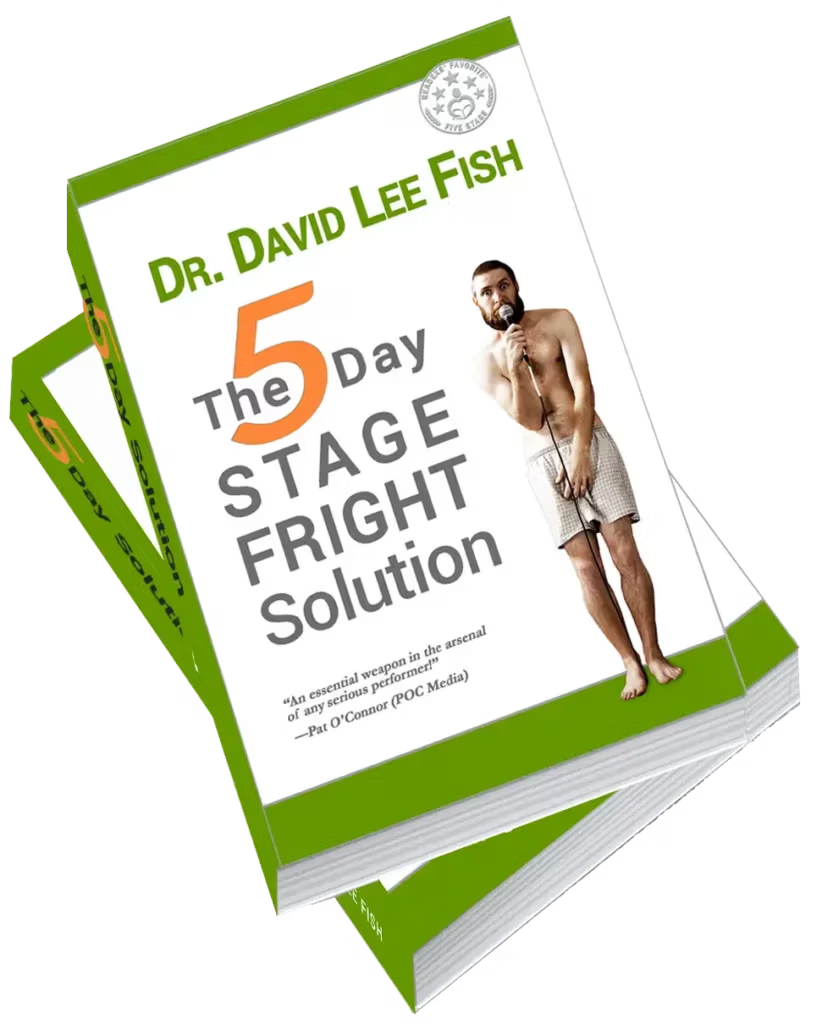Let me share the story of the monk and the strawberry. It serves as a lovely parable about how to approach speech anxiety mindfully. This story is also relevant to other forms of performance anxiety. It also applies to the stage fright experienced by performers and the nervousness felt by athletes and competitors.
Imagine a man-eating tiger chasing a monk along a narrow mountain path. Suddenly, the monk loses his footing and tumbles over the cliff’s edge. He grabs a small bush growing from the rocky face as he falls. Dangling precariously, he looks up and sees the tiger waiting for him. Glancing down, he sees jagged rocks hundreds of feet below. The branch begins to crack under his weight.
In this moment of extreme peril, the monk notices a plump, ripe strawberry growing from the bush. He plucks the strawberry and pops it into his mouth.
“Ah, how sweet it tastes!” he exclaims, savoring the fruit’s flavor.
The moral of the story: even in life’s most perilous moments, we can find joy and appreciation in the present.
The Metaphor for Speech Fright
In the context of public speaking, the cliff is this story of the monk, and the strawberry can be viewed as the stage or podium. Just as the monk faced certain doom, speakers often feel trapped by their anxiety, seeing no escape from the perceived threat of public speaking. The fear of judgment, failure, or embarrassment looms large, much like the jagged rocks below the monk.
Just as the monk faced certain doom, speakers often feel trapped by their anxiety, seeing no escape from the perceived threat of public speaking. The fear of judgment, failure, or embarrassment looms large, much like the jagged rocks below the monk.
Embracing the Present Moment
The monk’s decision to enjoy the strawberry despite his dire circumstances exemplifies the core principle of mindfulness—fully experiencing the present moment without judgment or resistance. For speakers grappling with anxiety, this translates to accepting nervous feelings and redirecting focus to the act of speaking itself.
The Sweetness of Acceptance
Just as the monk found unexpected joy in the strawberry’s sweetness, speakers who practice mindful acceptance often discover hidden pleasures in public speaking. By letting go of your struggle against anxiety, you free up mental energy to connect with your audience, express your ideas more clearly, and even enjoy the experience.[1]
Practical Application of the Monk and the Strawberry
To apply this parable to speech fright, consider these steps:
- Acknowledge your anxiety without trying to eliminate it.
- Shift your focus (back) to giving your speech.
- Engage fully in the act of speaking.
That’s It?
Some of you might scoff, “Finding the way beyond speech fright can’t be that simple.”
Actually, it is.
Sure, I could offer you a more complex solution to performance anxiety, but what good is that if it’s too hard to apply “in the moment”—when you’re trying to concentrate on speaking, but your mind is racing with anxious thoughts?
What you need is a simple, surefire solution, one you can count on through thick and thin.

Age Old Wisdom, Modern Application
The rise in popularity of mindfulness in recent years led to a superficial form known as McMindfulness. However, what we’re discussing here is a more authentic version of mindfulness that returns to its Zen roots. (Fun fact: I studied under the same Korean Zen master as the founder of mindfulness, Jon Kabbat-Zin.)
Mindfulness is age-old wisdom that important scientific studies have validated as perhaps the best answers to a wide range of problems, including stress reduction, emotional regulation, improved focus, and enhanced overall well-being. It has become increasingly clear that this ancient approach offers valuable tools for modern living.
What the Monk and the Strawberry Can Teach Us
The Zen parable of the monk and the strawberry reminds us that even in our most challenging moments, we have the power to choose our focus. By accepting speech fright as a natural part of the human experience and redirecting our attention to the present moment, we can transform a seemingly threatening situation into an opportunity for growth and even enjoyment.
Remember the monk and his strawberry as you face your next speaking engagement. Your anxiety may be real, but so is the opportunity to share your message, connect with others, and savor your public speaking experience. By embracing mindful acceptance, you may find unexpected sweetness in the very act you once feared.
FAQs
Q1. What is the main message of the Monk and the Strawberry story? The story teaches us to find joy in the present moment, even in challenging situations. It encourages mindfulness and appreciating life’s simple pleasures, regardless of our circumstances.
Q2. How does the parable relate to public speaking anxiety? The parable parallels the experience of speech anxiety, with the cliff representing the stage and the tigers symbolizing perceived threats. It suggests that speakers can find moments of enjoyment and connection despite their fears.
Q3. What is the READ method for managing speech anxiety? The READ method stands for Remind, Engage, Accept, and Detach. It’s a practical framework for managing speech anxiety by acknowledging fears, engaging with the environment, accepting nervous feelings, and detaching from outcome-focused thinking.
Q4. How can mindfulness help with public speaking? Mindfulness can help speakers stay present, accept nervous feelings without judgment, and redirect focus to the act of speaking. It allows for better connection with the audience and can reveal unexpected moments of joy in the speaking experience.
Q5. What are some practical tips for applying the story’s wisdom to public speaking? Some tips include acknowledging anxiety without trying to eliminate it, shifting focus to the content and audience, engaging fully in the speaking experience, and recognizing the temporary nature of each speaking engagement. These strategies can help speakers find more enjoyment and success in their presentations.

























